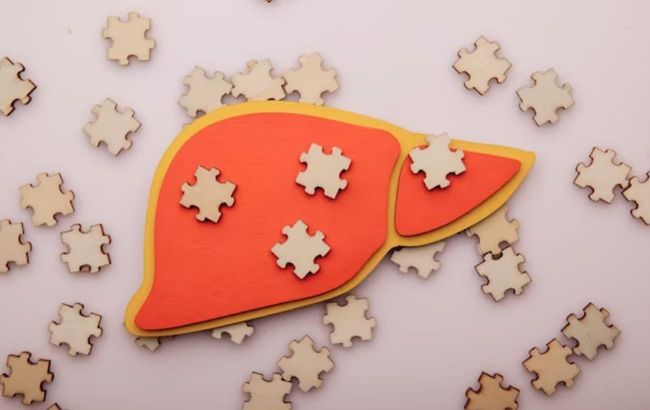5 steps for healthy liver - Doctor's advice
 How to maintain liver health (photo: Freepik)
How to maintain liver health (photo: Freepik)
The liver performs many vital functions - it fights infections, produces bile, regulates cholesterol levels, and filters harmful substances from the blood. The liver can be damaged by viral hepatitis infections, excessive alcohol consumption, certain medications and supplements, as well as excess weight. The liver is capable of regeneration, but it is important to support its health. Gastroenterologist Yevhenia Belinska reports on the 5 steps to maintain liver health, citing a publication by on Instagram.
Reduce alcohol consumption
"Any alcohol affects the liver, but excessive drinking overloads this organ and begins to damage its cells. Excessive drinking is considered to be: consuming four or more drinks in a short period for women and five for men. Or 8 or more drinks per week for women and 15 or more for men. Remember that there is no safe amount of alcohol," says the doctor.
Maintain a healthy weight
Being overweight increases the risk of fatty liver disease. The National Institute of Diabetes and Digestive and Kidney Diseases recommends that people with obesity:
- reduce body weight by 3-5% to decrease fat in the liver
- reduce body weight by 7-10% to reduce inflammation and liver fibrosis
"The best strategy for losing excess weight or maintaining a healthy weight is to stay physically active and follow a balanced diet. Rapid weight loss and under-eating can worsen liver health," warns Belinska.
Take medications responsibly
Medications should only be taken as prescribed by a doctor and adhere to the recommended dosage. The liver is vulnerable to the consequences of self-medication. About 9% of liver damage cases are caused by the use of dietary supplements.
Eat a variety of foods and maintain a balanced diet
"Consume at least 5 servings of diverse vegetables and fruits daily. Each serving should be about the size of your fist. Expand your grocery list and add different colors to your plate," advises the gastroenterologist.
Reduce the intake of products and beverages containing simple sugars, especially fructose. Our liver is the only organ capable of metabolizing fructose. If there is an excess of this sugar, the liver converts it into fat. Fructose is found in sweetened non-alcoholic beverages, honey, and syrups.
"Try to get as many diverse nutrients from unprocessed foods as possible. For example, brown rice is better than white, whole potatoes are better than mashed, whole grains are better than refined ones. It's better to eat two apples than to drink 250 milliliters of apple juice," says the doctor.
Carbohydrates containing fiber metabolize slower than refined carbohydrates and typically prevent blood glucose fluctuations.
Have desserts after the main meal. The total consumption of saturated fats should be less than 10% of total calories. Prefer unsaturated fats found in virgin oils, nuts, avocados, olives, and fatty fish.
"Incorporate two servings of fish containing omega-3 fatty acids into your diet. Limit salt intake to no more than 1 teaspoon per day. Reduce consumption of products with added sugar, salt, refined carbohydrates, and saturated fats," advises Belinska.
Regularly visit your doctor
"Hepatic diseases often do not exhibit pronounced symptoms for a long time. The liver does not hurt because it lacks nerve endings. Pain syndrome develops only when the liver enlarges. Therefore, seek medical attention in a timely manner and undergo preventive check-ups," explains the gastroenterologist.
Also, read about where to find "the vitamin of youth" E and why its deficiency should never be allowed.
This material is for informational purposes only and should not be used for medical diagnosis or self-treatment. Our goal is to provide readers with accurate information about symptoms, causes, and methods of detecting diseases. RBС-Ukraine is not responsible for any diagnoses that readers may make based on materials from the resource. We do not recommend self-treatment and advise consulting a doctor in case of any health concerns.

